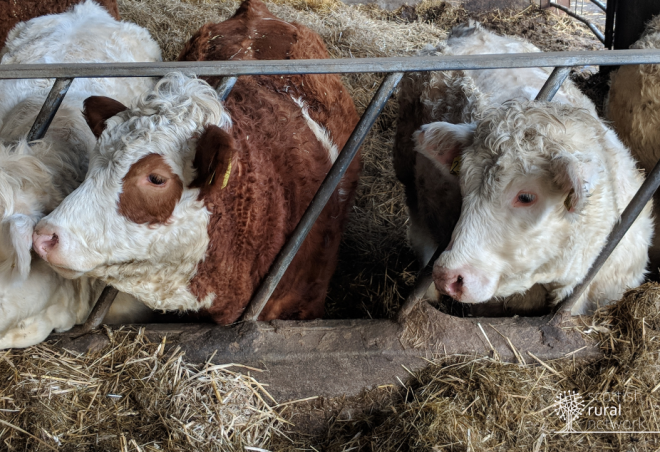Resilient Farm Network launched

Loch Lomond & The Trossachs National Park Authority is inviting local farmers to take part in the Resilient Farm Network (RFN), a five-year (2025-2029) programme to boost climate and nature-friendly farming in a way that is profitable for farmers.
The initiative aims to promote farm profitability and resilience, while fostering nature restoration, by focusing on farmer-led sustainability approaches that help farm businesses thrive amid climate and economic challenges, providing farmers with practical tools, support and resources.
Three host farms will benefit from comprehensive financial, enterprise performance, environmental and biodiversity reviews, along with regular peer support through a local discussion group. These groups will foster collaboration, share best practices, and support implementation of on-farm improvements.
A recent report by Scottish Environment LINK highlighted how Scotland’s National Parks can support more sustainable farming, contributing at a greater level to both environmental goals and rural economies. Farmers in the National Park have access to the same funds as farmers elsewhere, but on top of that, additional money is made available for work which supports the National Parks’ aims – the RFN programme being a strong example of such additional funding.
The National Park Authority has committed to ensuring that the RFN programme remains farmer driven. It will focus on peer-to-peer knowledge exchange, supported by training and advice, with local land managers leading discussions, sharing experiences, and scoping ideas for on-farm trials.
Daniel Stout, a Land Management Adviser with the National Park Authority will lead the programme. An experienced farm consultant with a crofting background, Stout brings valuable expertise that will help host farms make evidence-driven decisions to benefit their operations and the wider community.
Commenting on the programme, Daniel said:
“This is an exciting opportunity for forward-thinking farmers to lead by example, trialling new methods and refining their farming systems for the benefit of their own businesses and the wider farming community”.
“The Resilient Farm Network will bring local farmers together to find solutions that improve profitability and sustainability, building resilience to any future changes in support payments, climate, and market fluctuations.
” Within the context of upland livestock farming in the National Park, this can be achieved through practices such as focusing on forage-based sheep and beef systems, improved grassland management, and sustainable parasite control. By optimising production and reducing input costs, we can enhance profitability, which in turn can lead to improvements in farm carbon footprints and nature value.
“A key part of the programme is the continual review of financials, enterprise performance, and carbon, habitat, and biodiversity audits. This allows us to demonstrate the positive impact of changes in management practices and highlight the contribution that livestock farming brings to these areas.”
Key Benefits to Farmers:
- Farmer-Led Collaboration: Host farms will work closely with a local discussion group of farmers and land managers, ensuring decisions are made by those with on-the-ground expertise. This collaborative approach promotes innovation through shared experiences.
- Tailored Support: Host farms will receive free financial analysis, enterprise performance, biodiversity audits, and carbon foot printing along with a commitment to provide on-going support, advice and review to support implementation and demonstrate the value of different practices.
- Practical Outcomes: The programme aims to deliver and demonstrate measurable improvements in farm profitability and resilience, helping farmers to optimise farm productivity sustainably, reducing input costs whilst promoting nature restoration through nature friendly farming practices and habitat creation.
Through this programme, the National Park Authority aims to support the long-term sustainability of farming and land management within the park, to enhance nature recovery, reduce carbon emissions and promote carbon sequestration.

The Park Authority is hosting a free event for those interesting in hearing more about the RFN on Monday 28th October at 7.15pm at its headquarters in Balloch. The event will feature a presentation from Perthshire farmer John Ritchie, who has transformed the profitability and resilience of his upland farm near Forgandenny by focusing on production from pasture.
To book your place, please sign up through the following link: LLTNPA Resilient Farm Network Tickets, Mon 28 Oct 2024 at 19:15 | Eventbrite
How to apply: Farmers interested in becoming a Resilient Farm Network host farm are encouraged to submit a online Expression of Interest form by following this link by Sunday 10th November 2024.
Picture credit: Loch Lomond View (pic by generacionx via Canva)
Picture credit: Feeding station (pic A Robertson)


